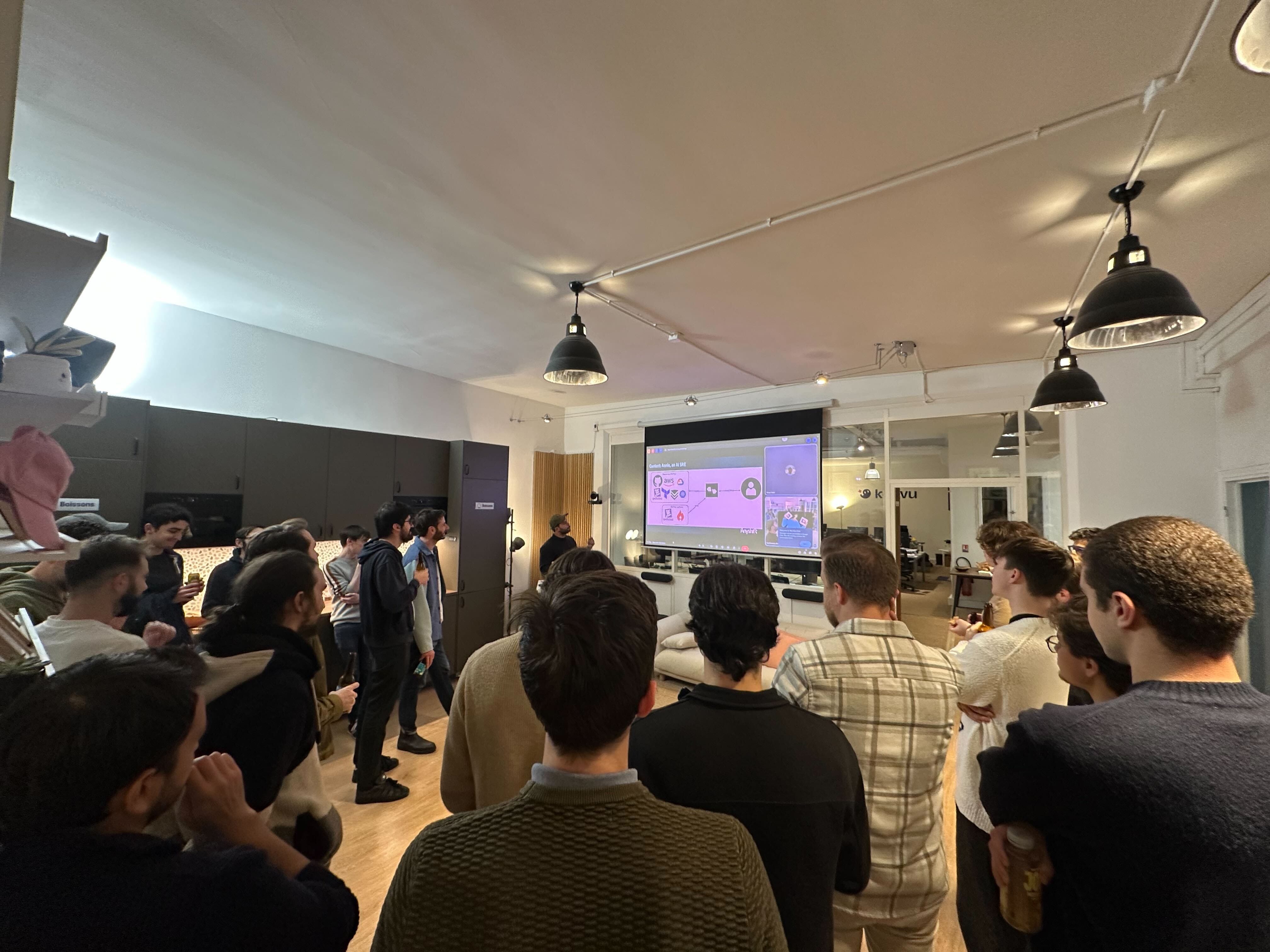Every other month, we gather engineers around our conference table for Konvupero: our internal tech talk where we invite brilliant minds to share some of the technical challenges they've overcome. This time, Ghazi Felhi from Anyshift dropped some knowledge about teaching AI agents without fine-tuning.

Why we host Konvupero
Building AI agents for security isn't just about the code you write, it's about staying connected to the broader AI community and learning from teams tackling similar challenges in different domains.
DevOps and security face remarkably similar problems: fast-changing environments, overwhelming alert volumes, and the need for AI that adapts without constant retraining. When Ghazi reached out about his work at Anyshift, we knew this was exactly the kind of cross-pollination our team needed.
That's what Konvupero is about: creating space for engineers to share breakthroughs, challenge assumptions, and learn out loud together.
Tech Talk: Agentic Context Engineering (ACE)
Ghazi introduced us to Annie, Anyshift's AI Engineer, and walked us through Agentic Context Engineering (ACE), a fundamentally different approach to teaching AI agents.
Instead of fine-tuning models, you teach agents to learn from their own experiences.
How ACE works
ACE enables agents to build contextual knowledge by reflecting on their own executions and curating insights into structured "cheat sheets": transparent playbooks that capture what the agent has learned. Unlike fine-tuning's opaque weight updates, these playbooks are easy to inspect, modify, and discuss.
The implementation is surprisingly simple: a SQL table and two background agent calls (reflector and curator). As Annie runs tasks, she:
- Reflects on her executions to identify patterns in naming conventions, log behaviors, and incident signals
- Curates insights into structured knowledge that adapts to client-specific environments
- Naturally absorbs feedback from chat interactions or Slack, streamlining previously manual cycles
The results
- 75% fewer agent executions than fine-tuning or prompt optimization methods, no thousands of labeled examples or expensive training infrastructure
- 30% faster root cause analysis in production, with Annie learning to distinguish normal from abnormal events
- No ground truth labels required: ACE outperformed both GEPA (prompt optimization) and fine-tuning across app workflows, financial analysis, and more
- Transparency and control: clear learning objectives, easy troubleshooting, and iterative improvement
The method is new (emerging from recent research), and best practices are still evolving. But the early results show it's particularly well-suited for fast-moving domains where continual learning from context is essential.
Building a culture where learning happens out loud
At Konvu, we believe the best engineering happens when smart people share what they're learning. Hosting Konvupero isn't just about staying current with applied AI research, it's about building a culture where curiosity thrives and breakthrough ideas cross-pollinate between domains.
We're already planning the next Konvupero session. Got a technical learning to share? We're always looking for speakers who've overcome interesting tech challenges. Submit a proposal for our next Konvupero lightning talk.
Want to join conversations like these? We're looking for curious engineers who get excited about pushing the boundaries of what AI agents can do. The problems we're solving in security are hard, the technical challenges are fascinating, and the learning never stops. Check out our open positions.
Thanks again to Ghazi Felhi and the Anyshift team for sharing their work with us.
